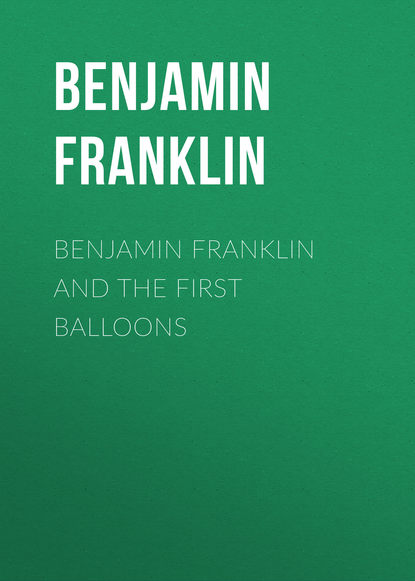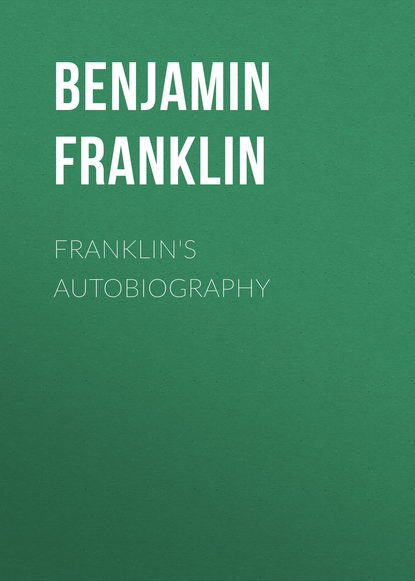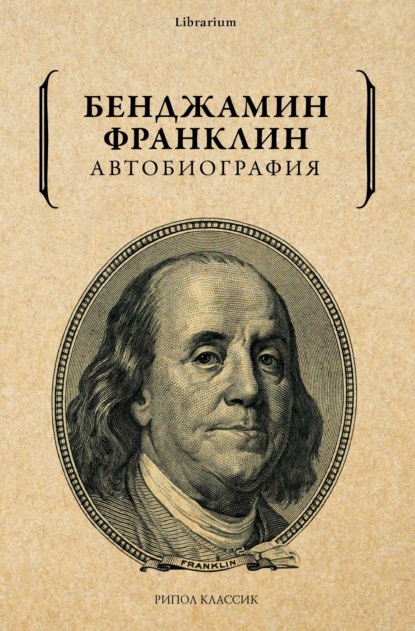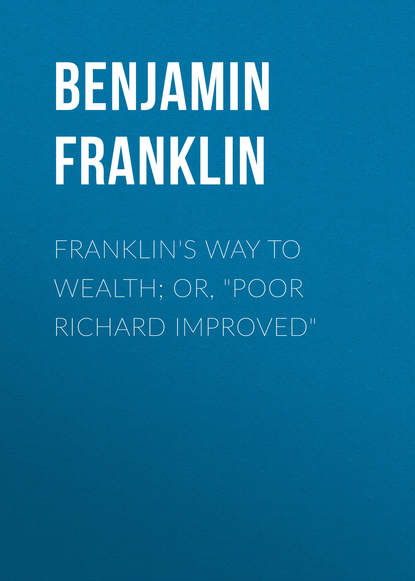![Memoirs of Benjamin Franklin; Written by Himself. [Vol. 2 of 2]](/covers/24858395.jpg)
Полная версия
Memoirs of Benjamin Franklin; Written by Himself. [Vol. 2 of 2]
Confined air, when saturated with perspirable matter,1 will not receive more; and that matter must remain in our bodies and occasion diseases; but it gives some previous notice of its being about to be hurtful, by producing certain uneasiness, slight indeed at first, such as with regard to the lungs is a trifling sensation, and to the pores of the skin a kind of restlessness, which is difficult to describe, and few that feel it know the cause of it. But we may recollect that sometimes, on waking in the night, we have, if warmly covered, found it difficult to get asleep again. We turn often, without finding repose in any position. This fidgetiness (to use a vulgar expression for want of a better) is occasioned wholly by an uneasiness in the skin, owing to the retention of the perspirable matter, the bedclothes having received their quantity, and, being saturated, refusing to take any more. To become sensible of this by an experiment, let a person keep his position in the bed, but throw off the bedclothes, and suffer fresh air to approach the part uncovered of his body; he will then feel that part suddenly refreshed; for the air will immediately relieve the skin, by receiving, licking up, and carrying off, the load of perspirable matter that incommoded it. For every portion of cool air that approaches the warm skin, in receiving its portion of that vapour, receives therewith a degree of heat that rarefies and renders it lighter, when it will be pushed away, with its burden, by cooler and, therefore, heavier fresh air, which for a moment supplies its place, and then, being likewise changed and warmed, gives way to a succeeding quantity. This is the order of nature, to prevent animals being infected by their own perspiration. He will now be sensible of the difference between the part exposed to the air and that which, remaining sunk in the bed, denies the air access; for this part now manifests its uneasiness more distinctly by the comparison, and the seat of the uneasiness is more plainly perceived than when the whole surface of the body was affected by it.
Here, then, is one great and general cause of unpleasing dreams. For when the body is uneasy, the mind will be disturbed by it, and disagreeable ideas of various kinds will in sleep be the natural consequences. The remedies, preventive and curative, follow:
1. By eating moderately (as before advised for health's sake), less perspirable matter is produced in a given time; hence the bedclothes receive it longer before they are saturated, and we may therefore sleep longer before we are made uneasy by their refusing to receive any more.
2. By using thinner and more porous bedclothes, which will suffer the perspirable matter more easily to pass through them, we are less incommoded, such being longer tolerable.
3. When you are awakened by this uneasiness, and find you cannot easily sleep again, get out of bed, beat up and turn your pillow, shake the bedclothes well, with at least twenty shakes, then throw the bed open and leave it to cool; in the mean while, continuing undressed, walk about your chamber till your skin has had time to discharge its load, which it will do sooner as the air may be drier and colder. When you begin to feel the cold air unpleasant, then return to your bed, and you will soon fall asleep, and your sleep will be sweet and pleasant. All the scenes presented to your fancy will be, too, of the pleasing kind. I am often as agreeably entertained with them as by the scenery of an opera. If you happen to be too indolent to get out of bed, you may, instead of it, lift up your bedclothes with one arm and leg, so as to draw in a good deal of fresh air, and, by letting them fall, force it out again. This, repeated twenty times, will so clear them of the perspirable matter they have imbibed, as to permit your sleeping well for some time afterward. But this latter method is not equal to the former.
Those who do not love trouble, and can afford to have two beds, will find great luxury in rising, when they wake in a hot bed, and going into the cool one. Such shifting of beds would also be of great service to persons ill of a fever, as it refreshes and frequently procures sleep. A very large bed, that will admit a removal so distant from the first situation as to be cool and sweet, may in a degree answer the same end.
One or two observations more will conclude this little piece. Care must be taken, when you lie down, to dispose your pillow so as to suit your manner of placing your head, and to be perfectly easy; then place your limbs so as not to bear inconveniently hard upon one another, as, for instance, the joints of your ancles; for, though a bad position may at first give but little pain and be hardly noticed, yet a continuance will render it less tolerable, and the uneasiness may come on while you are asleep, and disturb your imagination. These are the rules of the art. But, though they will generally prove effectual in producing the end intended, there is a case in which the most punctual observance of them will be totally fruitless. I need not mention the case to you, my dear friend, but my account of the art would be imperfect without it. The case is, when the person who desires to have pleasant dreams has not taken care to preserve, what is necessary above all things,
A Good Conscience.ADVICE TO A YOUNG TRADESMAN
To my Friend A. B.
As you have desired it of me, I write the following hints, which have been of service to me, and may, if observed, be so to you.
Remember that time is money. He that can earn ten shillings a day by his labour, and goes abroad or sits idle one half of that day, though he spends but sixpence during his diversion or idleness, ought not to reckon that the only expense; he has really spent, or, rather, thrown away, five shillings besides.
Remember that credit is money. If a man lets his money lie in my hands after it is due, he gives me the interest, or so much as I can make of it during that time. This amounts to a considerable sum where a man has good and large credit, and makes good use of it.
Remember that money is of the prolific, generating nature. Money can beget money, and its offspring can beget more, and so on. Five shillings turned is six, turned again it is seven and threepence, and so on till it becomes a hundred pounds. The more there is of it, the more it produces every turning, so that the profits rise quicker and quicker. He that kills a breeding-sow, destroys all her offspring to the thousandth generation. He that murders a crown, destroys all that it might have produced, even scores of pounds.
Remember that six pounds a year is but a groat a day. For this little sum (which may be daily wasted either in time or expense unperceived) a man of credit may, on his own security, have the constant possession and use of a hundred pounds. So much in stock, briskly turned by an industrious man, produces great advantage.
Remember this saying, The good paymaster is lord of another man's purse. He that is known to pay punctually and exactly to the time he promises, may at any time, and on any occasion, raise all the money his friends can spare. This is sometimes of great use. After industry and frugality, nothing contributes more to the raising of a young man in the world than punctuality and justice in all his dealings; therefore never keep borrowed money an hour beyond the time you promised, lest a disappointment shut up your friend's purse for ever.
The most trifling actions that affect a man's credit are to be regarded. The sound of your hammer at five in the morning or nine at night, heard by a creditor, makes him easy six months longer; but if he sees you at a billiard-table, or hears your voice at a tavern when you should be at work, he sends for his money the next day; demands it, before he can receive it, in a lump.
It shows, besides, that you are mindful of what you owe; it makes you appear a careful as well as an honest man, and that still increases your credit.
Beware of thinking all your own that you possess, and of living accordingly. It is a mistake that many people who have credit fall into. To prevent this, keep an exact account for some time both of your expenses and your income. If you take the pains at first to mention particulars, it will have this good effect: you will discover how wonderfully small, trifling expenses mount up to large sums, and will discern what might have been, and may, for the future, be saved, without occasioning any great inconvenience.
In short, the way to wealth, if you desire it, is as plain as the way to market. It depends chiefly on two words, industry and frugality; that is, waste neither time nor money, but make the best use of both. Without industry and frugality nothing will do, and with them everything. He that gets all he can honestly, and saves all he gets (necessary expenses excepted), will certainly become rich, if that Being who governs the world, to whom all should look for a blessing on their honest endeavours, doth not, in his wise providence, otherwise determine.
An Old Tradesman.RULES OF HEALTH
Eat and drink such an exact quantity as the constitution of thy body allows of, in reference to the services of the mind.
They that study much ought not to eat so much as those that work hard, their digestion being not so good.
The exact quantity and quality being found out, is to be kept to constantly.
Excess in all other things whatever, as well as in meat and drink, is also to be avoided.
Youth, age, and the sick require a different quantity.
And so do those of contrary complexions; for that which is too much for a phlegmatic man is not sufficient for a choleric.
The measure of food ought to be (as much as possibly may be) exactly proportionable to the quality and condition of the stomach, because the stomach digests it.
That quantity that is sufficient, the stomach can perfectly concoct and digest, and it sufficeth the due nourishment of the body.
A greater quantity of some things may be eaten than of others, some being of lighter digestion than others.
The difficulty lies in finding out an exact measure; but eat for necessity, not pleasure; for lust knows not where necessity ends.
Wouldst thou enjoy a long life, a healthy body, and a vigorous mind, and be acquainted also with the wonderful works of God, labour in the first place to bring thy appetite to reason.
THE EPHEMERA; AN EMBLEM OF HUMAN LIFE
TO MADAME BRILLON, OF PASSYWritten in 1778You may remember, my dear friend, that when we lately spent that happy day in the delightful garden and sweet society of the Moulin Joly, I stopped a little in one of our walks, and stayed some time behind the company. We had been shown numberless skeletons of a kind of little fly, called an ephemera, whose successive generations, we were told, were bred and expired within the day. I happened to see a living company of them on a leaf, who appeared to be engaged in conversation. You know I understand all the inferior animal tongues. My too great application to the study of them is the best excuse I can give for the little progress I have made in your charming language. I listened, through curiosity, to the discourse of these little creatures; but as they, in their national vivacity, spoke three or four together, I could make but little of their conversation. I found, however, by some broken expressions that I heard now and then, they were disputing warmly on the merit of two foreign musicians, one a cousin, the other a moscheto; in which dispute they spent their time, seemingly as regardless of the shortness of life as if they had been sure of living a month. Happy people! thought I; you are certainly under a wise, just, and mild government, since you have no public grievances to complain of, nor any subject of contention but the perfections and imperfections of foreign music. I turned my head from them to an old gray-headed one, who was single on another leaf, and talking to himself. Being amused with his soliloquy, I put it down in writing, in hopes it will likewise amuse her to whom I am so much indebted for the most pleasing of all amusements, her delicious company and heavenly harmony.
"It was," said he, "the opinion of learned philosophers of our race, who lived and flourished long before my time, that this vast world, the Moulin Joy, could not itself subsist more than eighteen hours; and I think there was some foundation for that opinion, since, by the apparent motion of the great luminary that gives life to all nature, and which in my time has evidently declined considerably towards the ocean at the end of our earth, it must then finish its course, be extinguished in the waters that surround us, and leave the world in cold and darkness, necessarily producing universal death and destruction. I have lived seven of those hours, a great age, being no less than four hundred and twenty minutes of time. How very few of us continue so long! I have seen generations born, flourish, and expire! My present friends are the children and grandchildren of the friends of my youth, who are now, alas, no more! And I must soon follow them; for, by the course of nature, though still in health, I cannot expect to live above seven or eight minutes longer. What now avails all my toil and labour in amassing honey-dew on this leaf, which I cannot live to enjoy? What the political struggles I have been engaged in for the good of my compatriot inhabitants of this bush, or my philosophical studies for the benefit of our race in general! for, in politics, what can laws do without morals? Our present race of ephemeræ will in a course of minutes become corrupt like those of other and older bushes, and, consequently, as wretched. And in philosophy how small our progress! Alas! art is long and life is short! My friends would comfort me with the idea of a name they say I shall leave behind me; and they tell me I have lived long enough to nature and to glory. But what will fame be to an ephemera who no longer exists? And what will become of all history in the eighteenth hour, when the world itself, even the whole Moulin Joly, shall come to its end and be buried in universal ruin?"
To me, after all my eager pursuits, no solid pleasures now remain but the reflection of a long life spent in meaning well, the sensible conversation of a few good lady ephemeræ, and now and then a kind smile and a tune from the ever amiable Brillante.
THE WHISTLE
TO MADAME BRILLONPassy, November 10, 1779.* * * * * I am charmed with your description of Paradise, and with your plan of living there; and I approve much of your conclusion, that, in the mean time, we should draw all the good we can from this world. In my opinion, we might all draw more good from it than we do, and suffer less evil, if we would take care not to give too much for whistles For to me it seems that most of the unhappy people we meet with are become so by neglect of that caution.
You ask what I mean? You love stories, and will excuse my telling one of myself.
When I was a child of seven years old, my friends, on a holyday, filled my pocket with coppers. I went directly to a shop where they sold toys for children; and, being charmed with the sound of a whistle that I met by the way in the hands of another boy, I voluntarily offered and gave all my money for one. I then came home and went whistling all over the house, much pleased with my whistle, but disturbing all the family. My brothers, and sisters, and cousins, understanding the bargain I had made, told me I had given four times as much for it as it was worth; put me in mind of what good things I might have bought with the rest of the money; and laughed at me so much for my folly, that I cried with vexation; and the reflection gave me more chagrin than the whistle gave me pleasure.
This, however, was afterward of use to me, the impression continuing on my mind; so that often, when I was tempted to buy some unnecessary thing, I said to myself, Don't give too much for the whistle; and I saved my money.
As I grew up, came into the world, and observed the actions of men, I thought I met with many, very many, who gave too much for the whistle.
When I saw one too ambitious of court favour, sacrificing his time in attendance on levees, his repose, his liberty, his virtue, and perhaps his friends, to attain it, I have said to myself, This man gives too much for his whistle.
When I saw another fond of popularity, constantly employing himself in political bustles, neglecting his own affairs, and ruining them by that neglect, He pays, indeed, said I, too much for his whistle.
If I knew a miser, who gave up every kind of comfortable living, all the pleasure of doing good to others, all the esteem of his fellow-citizens, and the joys of benevolent friendship, for the sake of accumulating wealth, Poor man, said I, you pay too much for your whistle.
When I met with a man of pleasure, sacrificing every laudable improvement of the mind or of his fortune to mere corporeal sensations, and ruining his health in their pursuit, Mistaken man, said I, you are providing pain for yourself instead of pleasure; you give too much for your whistle.
If I see one fond of appearance, or fine clothes, fine houses, fine furniture, fine equipages, all above his fortune, for which he contracts debts and ends his days in prison, Alas! say I, he has paid dear, very dear, for his whistle.
When I see a beautiful, sweet-tempered girl married to an ill-natured brute of a husband, What a pity, say I, that she should pay so much for a whistle!
In short, I conceive that great part of the miseries of mankind are brought upon them by the false estimates they have made of the value of things, and by their giving too much for their whistles.
Yet I ought to have charity for these unhappy people, when I consider that, with all this wisdom of which I am boasting, there are certain things in the world so tempting, for example, the apples of King John, which, happily, are not to be bought; for if they were put to sale by auction, I might very easily be led to ruin myself in the purchase, and find that I had once more given too much for the whistle.
Adieu, my dear friend, and believe me ever yours very sincerely and with unalterable affection,
B. Franklin.ON LUXURY, IDLENESS, AND INDUSTRY.2
It is wonderful how preposterously the affairs of this world are managed. Naturally one would imagine that the interest of a few individuals should give way to general interest; but individuals manage their affairs with so much more application, industry, and address than the public do theirs, that general interest most commonly gives way to particular. We assemble parliaments and councils to have the benefit of their collected wisdom; but we necessarily have, at the same time, the inconvenience of their collected passions, prejudices, and private interests. By the help of these, artful men overpower their wisdom and dupe its possessors: and if we may judge by the acts, arrêts, and edicts, all the world over, for regulating commerce, an assembly of great men is the greatest fool upon earth.
I have not yet, indeed, thought of a remedy for luxury. I am not sure that in a great state it is capable of a remedy, nor that the evil is in itself always so great as it is represented. Suppose we include in the definition of luxury all unnecessary expense, and then let us consider whether laws to prevent such expense are possible to be executed in a great country, and whether, if they could be executed, our people generally would be happier, or even richer. Is not the hope of being one day able to purchase and enjoy luxuries a great spur to labour and industry! May not luxury, therefore, produce more than it consumes, if without such a spur people would be, as they are naturally enough inclined to be, lazy and indolent? To this purpose I remember a circumstance. The skipper of a shallop, employed between Cape May and Philadelphia, had done us some small service, for which he refused to be paid. My wife, understanding that he had a daughter, sent her a new-fashioned cap. Three years after, this skipper being at my house with an old farmer of Cape May, his passenger, he mentioned the cap, and how much his daughter had been pleased with it. "But," said he, "it proved a dear cap to our congregation." "How so?" "When my daughter appeared with it at meeting, it was so much admired that all the girls resolved to get such caps from Philadelphia; and my wife and I computed that the whole could not have cost less than a hundred pounds." "True," said the farmer, "but you do not tell all the story. I think the cap was, nevertheless, an advantage to us, for it was the first thing that put our girls upon knitting worsted mittens for sale at Philadelphia, that they might have wherewithal to buy caps and ribands there; and you know that that industry has continued, and is likely to continue, and increase to a much greater value, and answer better purposes." Upon the whole, I was more reconciled to this little piece of luxury, since not only the girls were made happier by having fine caps, but the Philadelphians by the supply of warm mittens.
In our commercial towns upon the seacoast fortunes will occasionally be made. Some of those who grow rich will be prudent, live within bounds, and preserve what they have gained for their posterity; others, fond of showing their wealth, will be extravagant and ruin themselves. Laws cannot prevent this; and perhaps it is not always an evil to the public. A shilling spent idly by a fool may be picked up by a wiser person, who knows better what to do with it. It is, therefore, not lost. A vain, silly fellow builds a fine house, furnishes it richly, lives in it expensively, and in a few years ruins himself; but the masons, carpenters, smiths, and other honest tradesmen have been by his employ assisted in maintaining and raising their families; the farmer has been paid for his labour, and encouraged, and the estate is now in better hands. In some cases, indeed, certain modes of luxury may be a public evil, in the same manner as it is a private one. If there be a nation, for instance, that exports its beef and linen to pay for the importation of claret and porter, while a great part of its people live upon potatoes and wear no shirts, wherein does it differ from the sot, who lets his family starve and sells his clothes to buy drink? Our American commerce is, I confess, a little in this way. We sell our victuals to the Islands for rum and sugar; the substantial necessaries of life for superfluities. But we have plenty, and live well, nevertheless, though, by being soberer, we might be richer.
The vast quantity of forest-land we have yet to clear and put in order for cultivation, will for a long time keep the body of our nation laborious and frugal. Forming an opinion of our people and their manners by what is seen among the inhabitants of the seaports, is judging from an improper sample. The people of the trading towns may be rich and luxurious, while the country possesses all the virtues that tend to promote happiness and public prosperity. Those towns are not much regarded by the country; they are hardly considered as an essential part of the states; and the experience of the last war has shown, that their being in possession of the enemy did not necessarily draw on the subjection of the country, which bravely continued to maintain its freedom and independence notwithstanding.
It has been computed by some political arithmetician, that if every man and woman would work for four hours every day on something useful, that labour would produce sufficient to procure all the necessaries of life, want and misery would be banished out of the world, and the rest of the twenty-four hours might be leisure and pleasure.
What occasions, then, so much want and misery? It is the employment of men and women in works that produce neither the necessaries nor conveniences of life; who, with those who do nothing, consume necessaries raised by the laborious. To explain this.
The first elements of wealth are obtained by labour, from the earth and waters. I have land and raise corn. With this, if I feed a family that does nothing, my corn will be consumed, and at the end of the year I shall be no richer than I was at the beginning. But if, while I feed them, I employ them, some in spinning, others in making bricks, &c., for building, the value of my corn will be arrested and remain with me, and at the end of the year we may all be better clothed and better lodged. And if, instead of employing a man I feed in making bricks, I employ him in fiddling for me, the corn he eats is gone, and no part of his manufacture remains to augment the wealth and convenience of the family; I shall, therefore, be the poorer for this fiddling man, unless the rest of my family work more or eat less, to make up the deficiency he occasions.





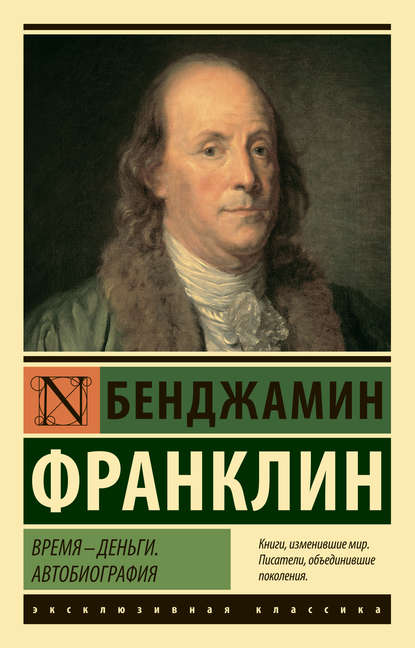
![Memoirs of Benjamin Franklin; Written by Himself. [Vol. 1 of 2]](/covers/24858139.jpg)
